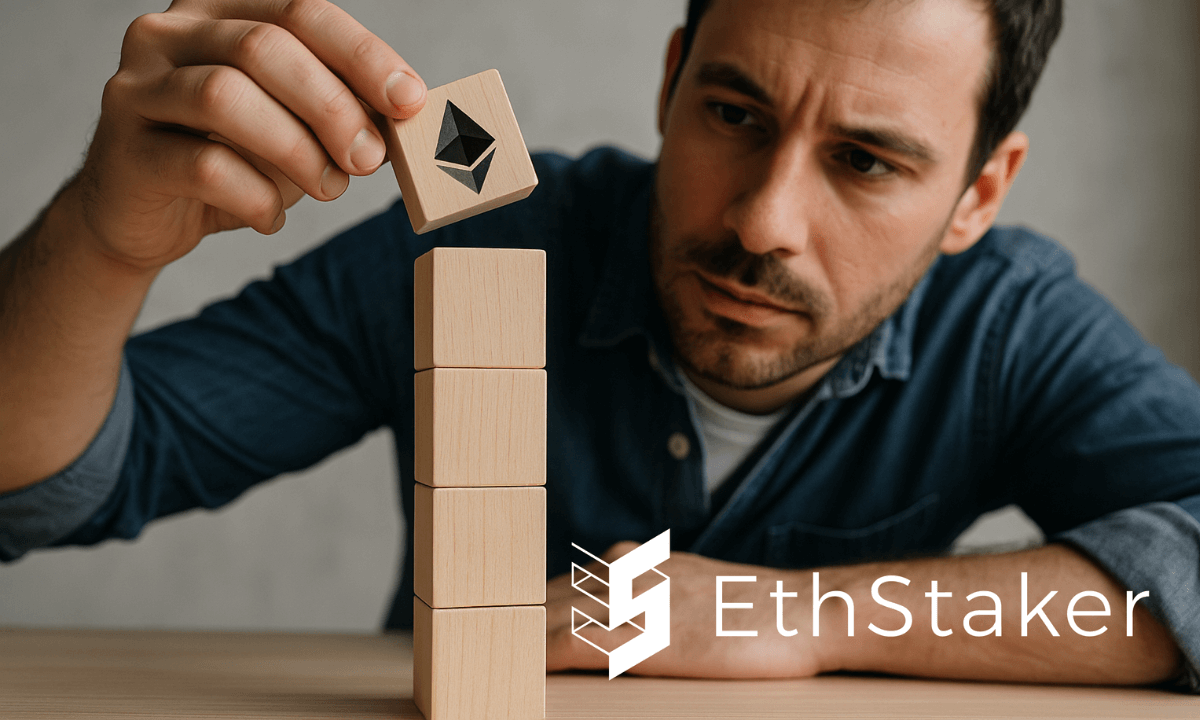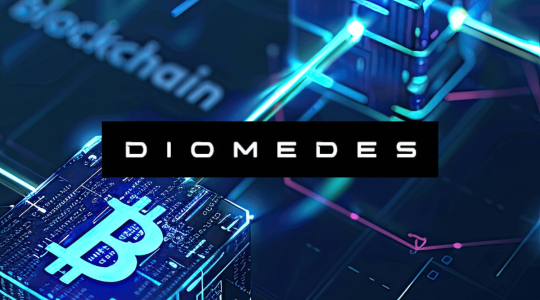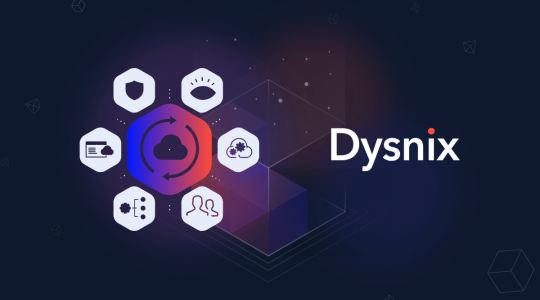Enhancing decentralised staking on Ethereum with reliable infrastructure
Ethstaker and OVHcloud


4 validator nodes
added globally through OVHcloud servers

8 core team members
running a non-profit organisation

+50,000 community members worldwide
in the Ethereum staking ecosystem
The context
Supporting decentralisation through community and neutral infrastructure
EthStaker is a non-profit organisation on a mission to support the decentralisation and health of the Ethereum staking ecosystem. Founded to serve independent and solo stakers, the organisation offers free, round-the-clock public support, produces educational content, participates in global blockchain events, and maintains an extensive knowledge base and open-source assets.
What makes EthStaker unique is its commitment to neutrality. Unlike many other players in the blockchain space, EthStaker is not influenced by venture capitalists or profit motives. This gives the organisation a level of credibility and trust unmatched in the community. All recommendations, from tooling to infrastructure, are made purely with decentralisation and the public good in mind.
Their target audience includes Ethereum protocol developers and the solo staking community—those who run Ethereum validator nodes outside of large staking-as-a-service platforms.
The challenge
Secure staking beyond the limits of home infrastructure
As Ethereum evolved into a proof-of-stake network, validators became the backbone of the protocol. EthStaker’s mission to promote and empower solo stakers brought with it a growing technical burden: how to help individuals run Ethereum validator nodes reliably, securely, and affordably—without needing enterprise-level infrastructure.
Many Ethereum stakers, EthStaker contributors, and community members rely on local setups, often built using “NUC” (Next Unit of Computing) devices—small, affordable, personal computers—and “home labs” which are DIY server environments run from their own homes. All of these are designed to meet Ethereum’s hardware requirements, part of which is having high SSD IOPS. While these setups align with Ethereum’s decentralisation ethos, in some circumstances they come with substantial limitations. Specifically, bandwidth caps from home internet service providers could slow down node syncing, and in the absence of an uninterruptible power supply, services can go offline unpredictably.
In short:
- In some circumstances, home labs lacked power, bandwidth, and performance.
- Ethereum nodes required high SSD IOPS and benefit from reliability.
- Global deployment was tough without sacrificing decentralisation.
EthStaker recognised that while running validators from home is ideal in theory, in practice a portion of their stakers needed more reliable, scalable, and geographically distributed infrastructure—especially those living in regions with power instability or restricted bandwidth. To support the mission and maintain neutrality, they had to find a solution that offered powerful infrastructure without straying from decentralisation principles or budget constraints.
What is Ethereum?
Ethereum is a decentralised, open-source blockchain platform that enables developers to build and deploy smart contracts and decentralised applications (dApps). Unlike traditional blockchains focused solely on transactions, Ethereum introduced programmability through its Ethereum Virtual Machine (EVM). The network is secured by validators who participate in a proof-of-stake consensus mechanism, replacing the earlier energy-intensive proof-of-work model.
The solution
Distributed validator infrastructure powered by OVHcloud
EthStaker chose OVHcloud’s Advance dedicated servers to support their validator infrastructure and felt confident in recommending it to the broader community. The move allowed them to take steps forward in both reach and reliability:
- Deployed Hoodi validator nodes across diverse global regions.
- Adopted cost-effective infrastructure aligned with EthStaker’s non-profit mission and commitment to neutrality.
When evaluating potential providers, EthStaker needed servers that could handle the significant demands of running an Ethereum node. Nodes can use anywhere from 500 GB to 4 TB of bandwidth each month, which ruled out many cloud providers with strict bandwidth limits or high data overage costs. Storage speed was another critical factor. Ethereum nodes require high disk throughput to maintain synchronisation and quickly verify blockchain data. Affordability was also essential; EthStaker operates on grants, sponsorships, and public good oriented funding, without traditional revenue streams. Moreover, the team needed the flexibility to spin up servers in different countries to align with Ethereum’s decentralisation goals. Using dedicated servers instead of shared infrastructure helped ensure resources weren’t throttled or starved by other users on the same machine.
OVHcloud met all these criteria, and EthStaker first started testing its offerings as early as 2020. Over time, the reliability and performance of OVHcloud’s infrastructure led to deeper adoption, and EthStaker now actively recommends OVHcloud to community members. The organisation also plans to launch co-branded hosting promotions to make decentralised staking more accessible through trusted infrastructure options.
A standout example of this collaboration was the deployment of Hoodi validator nodes. “Hoodi” is a name given to a group of independently operated Ethereum testing validators that participate in the Ethereum network while showcasing best practices for decentralisation. With OVHcloud, EthStaker was able to deploy four new Hoodi validators across different regions globally, reinforcing geographic diversity, and demonstrating how anyone can run validators reliably without needing an on-site datacentre.
The result
Onboarding validators to OVHcloud yielded immediate and lasting benefits for both EthStaker and the broader community they support.
Performance gains
High-speed SSDs and generous bandwidth enabled nodes to sync faster and remain stable. This significantly improved the validator experience for EthStaker and the users they support.
- Sync stability and bandwidth stress eliminated.
“OVHcloud servers offer everything a validator node needs when a cloud-based solution is needed—high SSD IOPS, bandwidth, and cost-effectiveness.”
Jonathan Meyer, Director, EthStaker
Flexibility and scalability
EthStaker was able to deploy four Hoodi validator nodes across multiple continents in just days, demonstrating how quickly infrastructure can adapt to growth and decentralisation goals. According to Rémy Roy, EthStaker Contributor, OVHcloud made it possible to “quickly add 4 Hoodi nodes in various locations around the world”, aligning perfectly with their mission.
The OVHcloud support experience also stood out. On one occasion, a hard drive malfunctioned but was swapped out within minutes, and the team didn’t need to create a support ticket. “All of our hardware issues have been resolved quickly and efficiently over the years”, noted Rémy Roy, highlighting the proactive support and reliability essential for high-availability infrastructure.
Looking forward
EthStaker captured their infrastructure strategy and approach in an in-depth blog post, which details the costs and benefits of using OVHcloud from a validator’s perspective. The transparency reinforces their role as a community advocate.
Looking forward, EthStaker plans to deepen its partnership with OVHcloud by offering promotional access to servers for new validators. This initiative aims to support solo stakers, especially those in underserved regions, with reliable infrastructure and guided setup. As Ethereum continues to evolve and its validator count increases, EthStaker will continue advocating for decentralised infrastructure—and OVHcloud is positioned to be a key part of that future.


